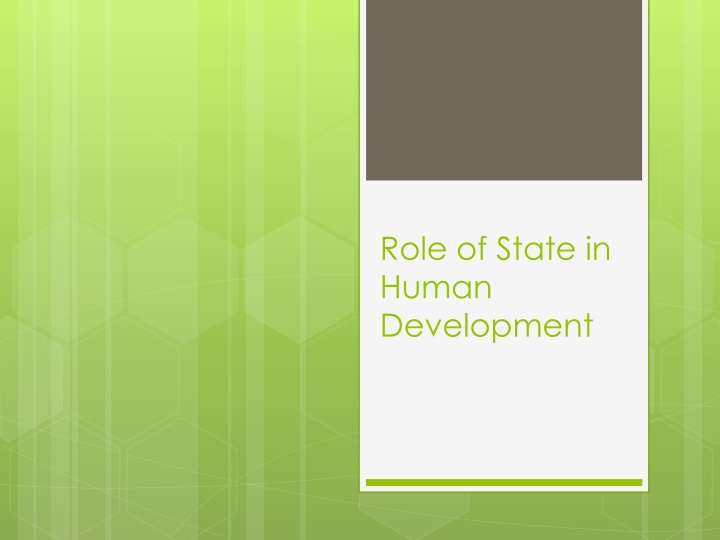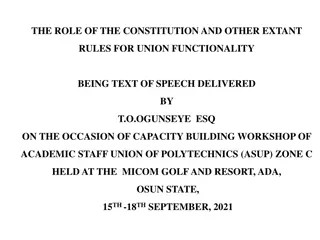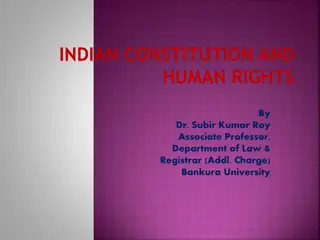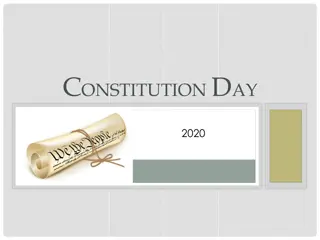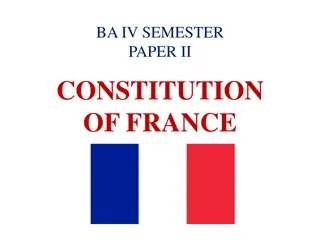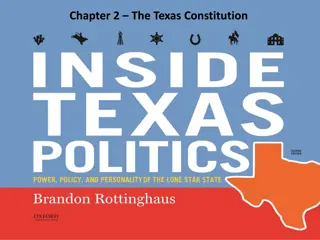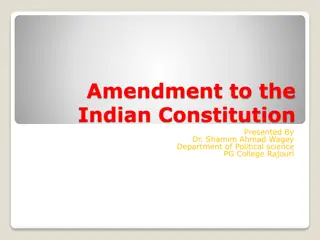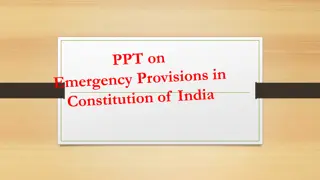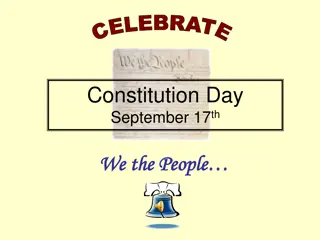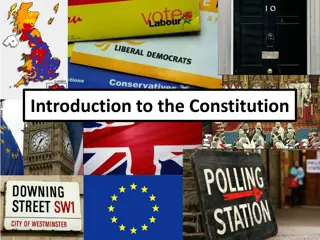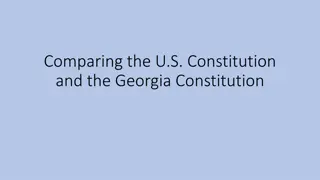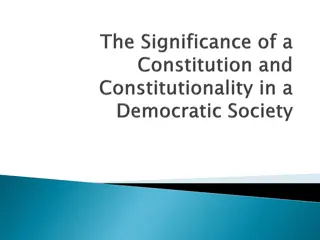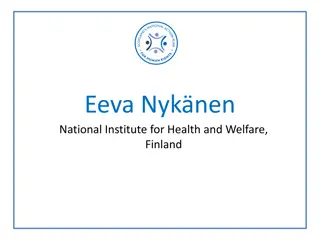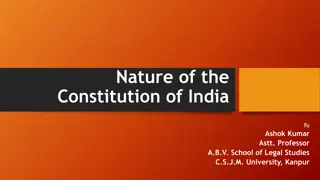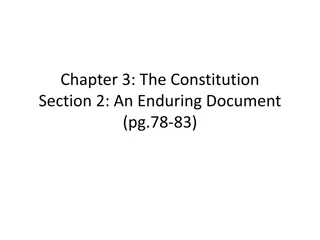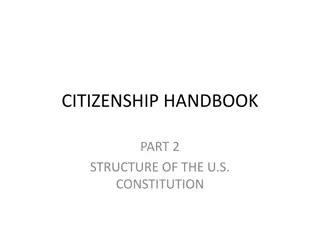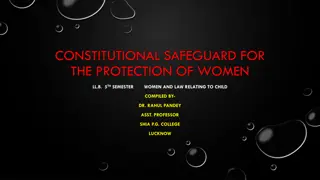Role of State in Human Development: Constitution of India Overview
The role of the State in human development is crucial and is outlined in the Constitution of India. The Preamble emphasizes principles of justice, liberty, equality, and fraternity, guaranteeing fundamental rights to all citizens. The Constitution contains detailed provisions on equality, freedom, rights against exploitation, freedom of religion, cultural and educational rights, property rights, and constitutional remedies. Additionally, the Directive Principles of State Policies provide guidelines for creating a just and egalitarian society through socio-economic measures.
Download Presentation

Please find below an Image/Link to download the presentation.
The content on the website is provided AS IS for your information and personal use only. It may not be sold, licensed, or shared on other websites without obtaining consent from the author.If you encounter any issues during the download, it is possible that the publisher has removed the file from their server.
You are allowed to download the files provided on this website for personal or commercial use, subject to the condition that they are used lawfully. All files are the property of their respective owners.
The content on the website is provided AS IS for your information and personal use only. It may not be sold, licensed, or shared on other websites without obtaining consent from the author.
E N D
Presentation Transcript
Role of State in Human Development
Constitution of India Preamble 22 Parts 12 Schedules 448 Articles 5 Appendices
Preamble JUSTICE: social, economic and political; LIBERTY of thought, expression, belief, faith and worship; EQUALITY of status and of opportunity; and to promote among them all FRATERNITY assuring the dignity of the individual and the [unity and integrity of the Nation]
Fundamental Rights State Guarantees basic human rights to all its citizen Article 12 t0 30
Art. 14-18: Right to Equality Art. 19-22: Right to Freedom Art. 23-24: Right against Exploitation Art. 25-28: Right to Freedom of religion Art. 29-30: Cultural and Educational Right Art. 31: Right to Property Art. 32: Right to Constitutional remedies
Directive Principles of State Policies Guidelines characterized political justice, liberty, equality, and fraternity as enunciated in the constitution's preamble Contained in part IV, articles 36 to 50 for creating by social, a economic, social order and
